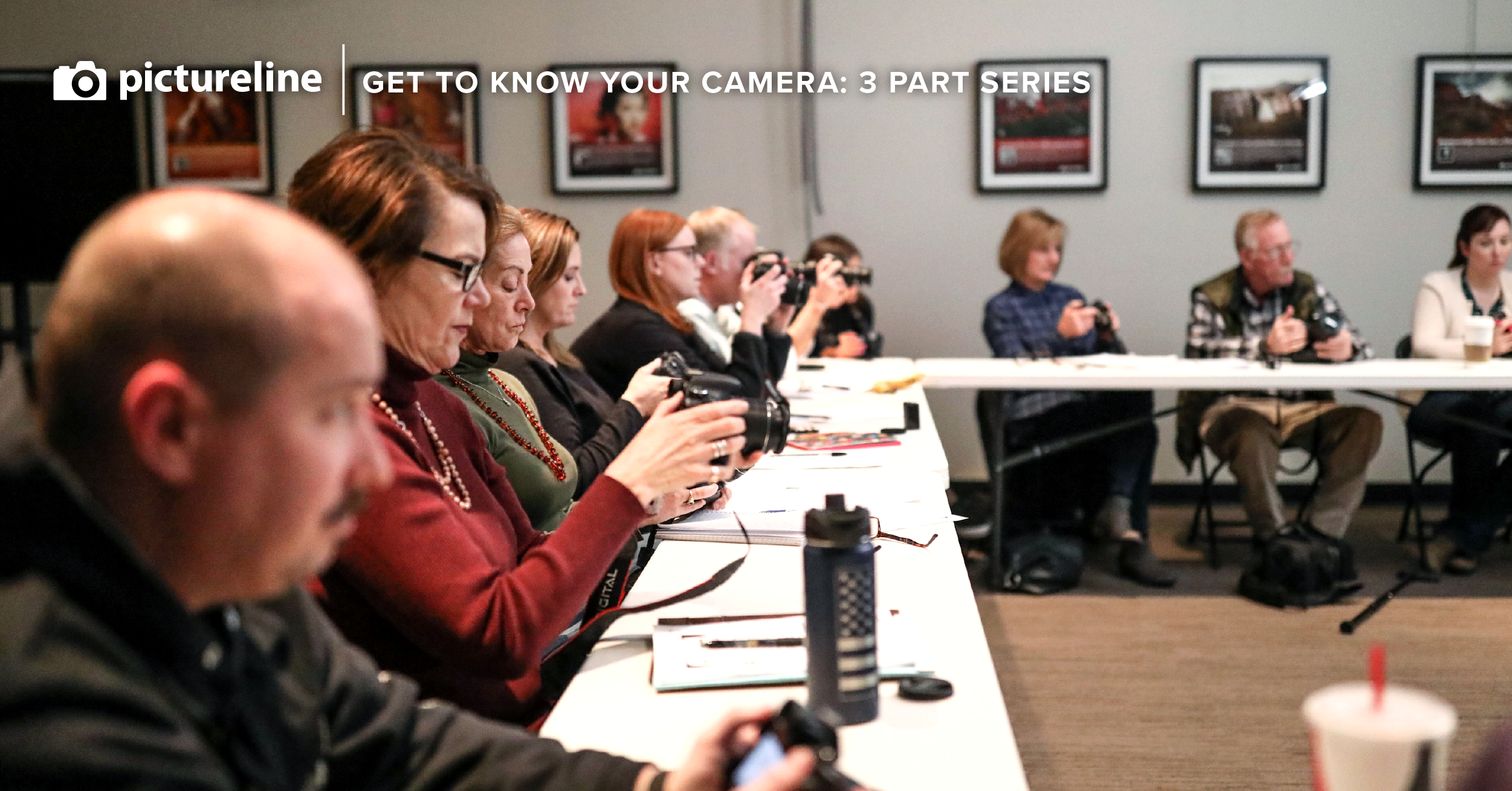
GET TO KNOW YOUR CAMERA (Intermediate Photo Class)
Have you ever purchased a camera and been completely overwhelmed by all of the buttons and menus? DSLRs and Mirrorless Cameras have an endless number of amazing options and tools that can help you create beautiful, artistic photos. But without the technical skills of knowing how to use your camera—and just leaving it in auto while you're shooting instead—can be like having a really fancy car, but never going over 5mph.
In our GET TO KNOW YOUR CAMERA class, we want to show you how to go full-speed ahead and accelerate your creative talents. We will explore the camera inside and out so that you can be prepared to take your photography above and beyond as you use your camera in manual mode and learn about the exposure triangle. The camera's menu is crucial to know in order to reach your full potential as a photographer.
Must have a newer DSLR or Mirrorless Camera.
Class One: Thursday, March 6th
Fundamentals of Photography
This class is a great introduction to photography as an art form, and a DSLR as your creative tool. But, to become the talented visionary we know you can be, you must first learn the essentials - shutter speed, aperture, and ISO.
You know that mysterious dial on top of your camera with all the letters, like M, P, or A? Maybe you've explored these settings, and maybe you haven't, but that is what this class is all about. Our focus for this session is to get you into Manual (M) mode and demystify all of the camera's settings, so that you can feel confident in knowing which one works best for you.
Shutter Speed
The Shutter controls the duration of time that the photo is being captured and is also the leading factor to motion blur. We will discuss which settings will work best with a variety of situations from blurring to freezing your action.
Aperture
The Aperture controls the amount of light and area of focus in a scene. We will talk about how to achieve soft focus backgrounds in portraits to sharp focus from corner to corner images in landscapes.
ISO
ISO determines how sensitive the sensor is to light. We will look at how the sensor's noise or grain changes from one setting to another. As well as, discuss how it can be helpful in dark and tricky lighting situations.
Class Two: Thursday, March 13th
Metering Modes
Light Metering modes have different ways of metering light. As light travels through the camera and exposes on the sensor its reflective light meter will inform you where aperture, shutter, and ISO must be properly adjusted.
Histograms
The histogram is one of the most important and least understood tools on your camera. We will demonstrate how to read your histogram which tells you whether or not your image is properly exposed.
Lenses
Learn how the right lens for your subject matter makes a world of difference in obtaining the perfect photo. We will discuss all aspects from quality, focal length, prime vs. zoom, specialty lenses, and depth of field control when making your decision.
Class Three: Thursday, March 20th
Focusing Points
Every camera can be a little different when it comes to Focusing Points. It's important to know how to control them and how to use them to your advantage.
Focusing Modes
Camera Focus modes are used to help you lock your focus points on your subject. We will discuss the differences between automatic and manual focusing and why you would use one over the other. When shooting in auto focus modes we will even go a little further to discuss the differences in single and continuous focusing modes and why to use them.
White Balance
White Balance is the process of removing unrealistic color cast in images. Adjusting white balance allows us to photograph objects which appear white in person and have the correct realistic color of white in a photograph.
Perfect for intermediate photographers, this class will elevate your base knowledge in order to take your skills to the next level. Must have a basic knowledge of how a camera operates.
